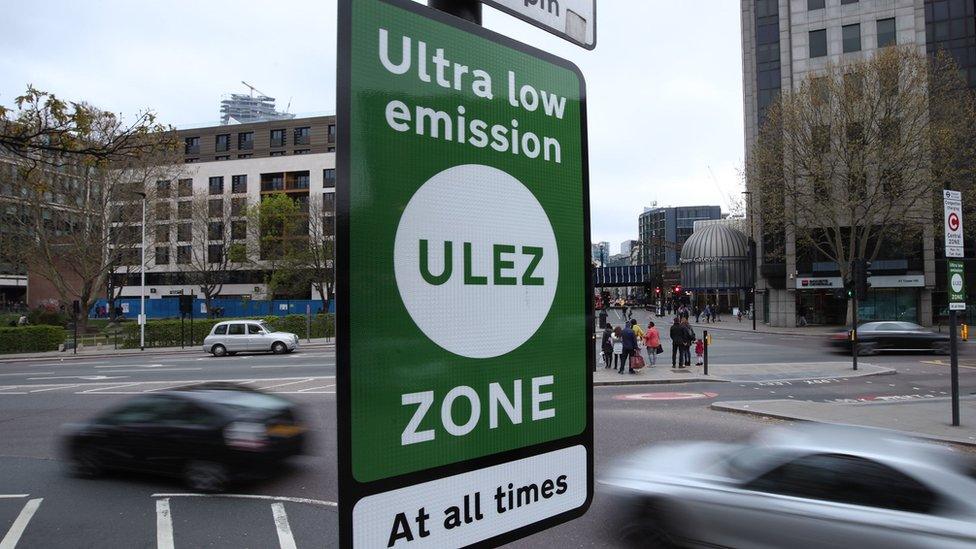London pollution: 'I will have to pay £480 to park outside my home'
- Published
- comments
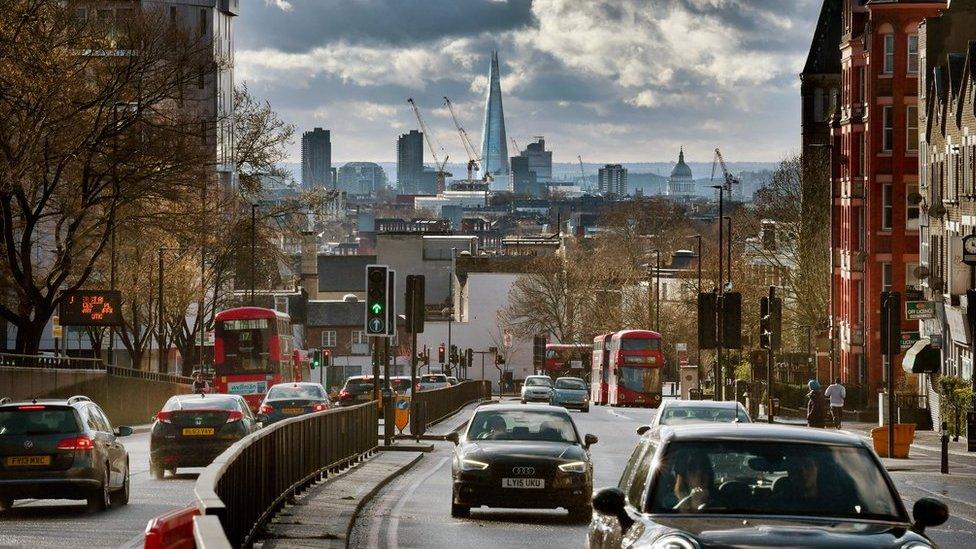
A number of schemes have been brought in to reduce emissions in the capital
Residents in the south London borough of Merton who drive more polluting cars are the latest to see the price of parking increase.
Merton Council wants to introduce parking permits of up to £690 for older and more polluting vehicles.
Paul Hockney lives in Raynes Park and has had his bright orange Honda car - nicknamed Harvey - for 20 years. He drives very little, mainly using public transport.
He uses the car to get big items to his allotment and will have to pay £480 to park outside his house.
"It's completely unfair to those of us who have done our bit to reduce the mileage and the amount we pollute," he told me.
"We only drive it where we can't use public transport. My wife and I use public transport whenever we can. We use this thing really as a load carrier to take stuff to and from our allotment and to drive to places where we can't get on public transport."
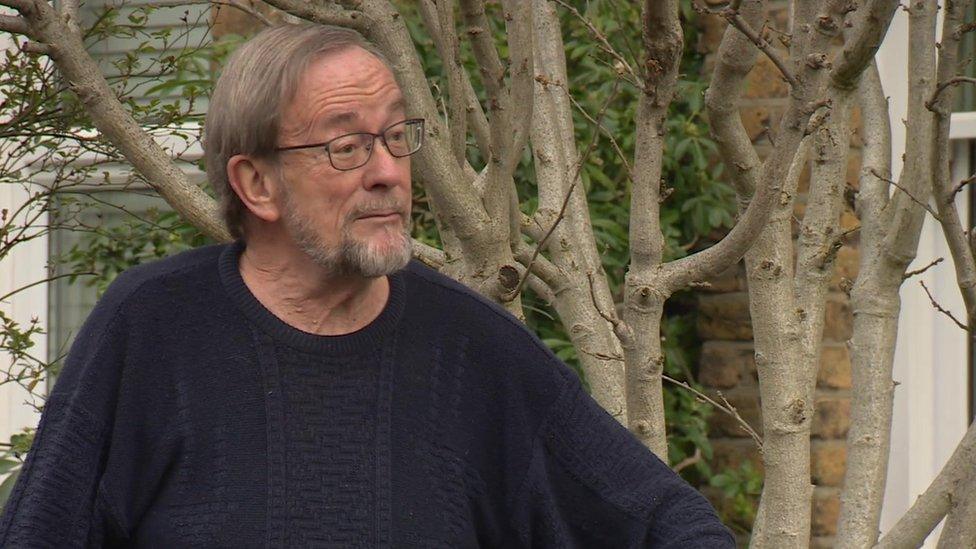
Paul Hockney says he has no plans to get rid of his Honda car
Other councils have emission-based permits, but Merton's charges are thought to be the highest in the UK.
More broadly the council wants to move to a more sustainable transport modes and ultimately reduce car ownership, external.
Councillor Rebecca Lanning said "just a handful" of residents in the borough would experience the highest charges.
"We are overall trying to get people to switch their vehicles and make use of one of our extensive car clubs," she added.
"It's not revenue raising - that's not the ambition of this policy. The success of it will be seeing people switch their vehicles."
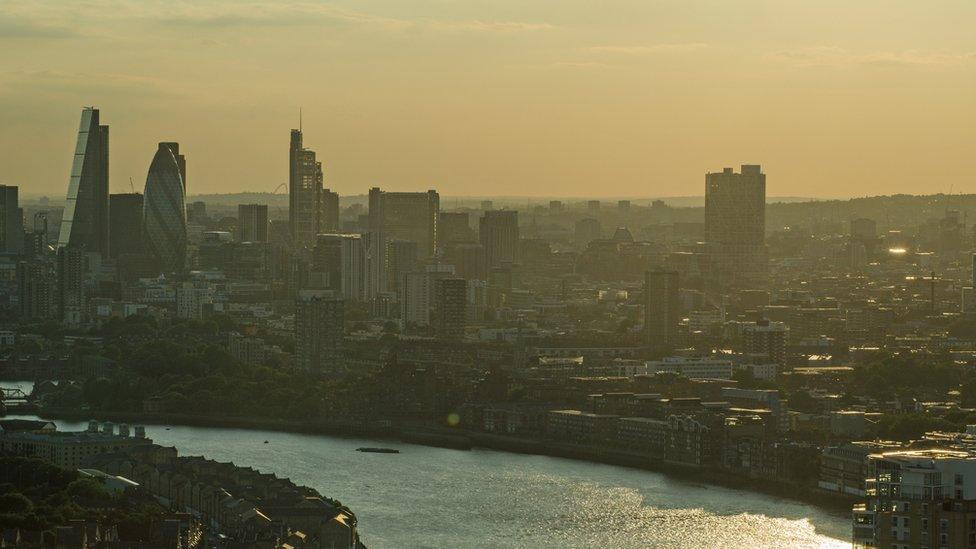
Sadiq Khan says there have been "dramatic improvements in London's air quality" since 2016
Other boroughs will be watching closely.
While councils don't have the power to ban vehicles, they do have the powers to charge them.
According to the London School of Economics, the "polluter pays" principle, external is the commonly accepted practice that those who produce pollution should bear the costs of managing it to prevent damage to human health or the environment.
The policy of the polluter paying has been around for many years and it continues to spread across London.
In 2008 the then mayor of London Ken Livingstone used the policy with the Low Emission Zone (LEZ) for lorries, external.
The charge was £100 if lorries did not meet pollution standards.
He also proposed a CO2 charge for the most CO2-emitting vehicles like 4x4s entering the congestion charging zone.
That idea was scrapped by Mr Livingstone's successor, Boris Johnson, who instigated the ultra low emission zone, external (ULEZ) that is in place today.
London's ULEZ: What you need to know
Mr Johnson's environment adviser at the time was Matthew Pencharz, who said after the 2012 election victory the Tory mayor was presented with options on how to continue cleaning up London's air.
"It was his idea to have the ULEZ and we worked up what is the current scheme, which Sadiq then brought forward by 17 months.
"Perhaps Boris felt he could be more ambitious, following his re-election and knowing he wasn't going to stand for a third term.
"It would be great if the next mayor could show similar bravery now and look seriously at integrating all these different schemes to address both congestion and pollution."
With the ULEZ at the moment drivers to pay to enter central London if the vehicle does not meet certain standards.
It is due to be expanded to the North and South circulars in October.
The ULEZ has had some success.
Between February 2017 and September 2019, there was a 65% reduction in the number of older, more polluting, non-compliant vehicles detected in the zone.

The campaign group Clean Air in London wants a system based on charging per mile.
It thinks drivers should be charged for the exact amount of pollution they create.
As part of that scheme, people should be paid to walk or cycle and passengers should pay to use public transport and more to drive.
The group's founder, Simon Birkett, said all mayoral candidates should support it.
'No worse off'
He told me: "Emission-based road charging is the fairest way to tackle air pollution and congestion.
"It would replace the ULEZ, LEZ and congestion charge and could be implemented within two years, ensure that people's privacy is no worse off and pay people to walk or cycle."
The policy of the polluter pays shows little sign of stopping - it may in fact accelerate in the capital as authorities like Merton look at ways to get people to change their travel habits.
Related topics
- Published8 April 2019
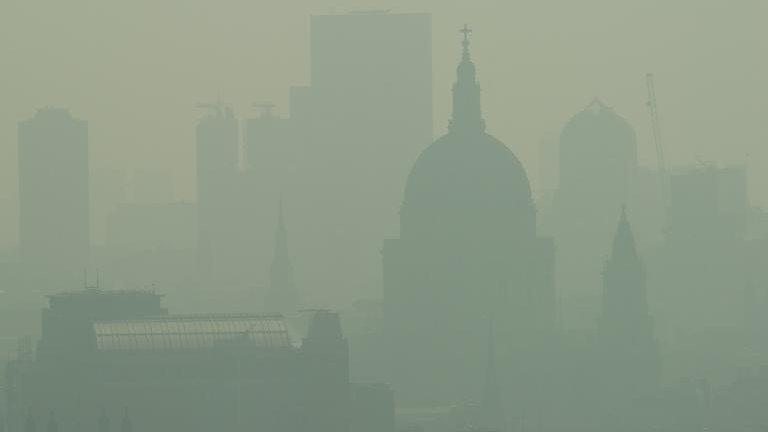
- Published13 February 2013
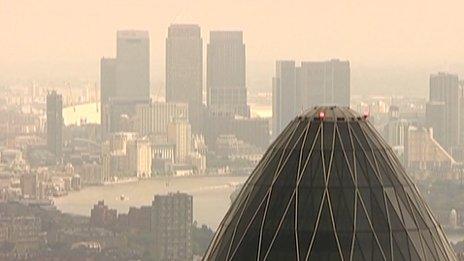
- Published5 April 2019
- Published26 March 2019
- Published16 May 2019
